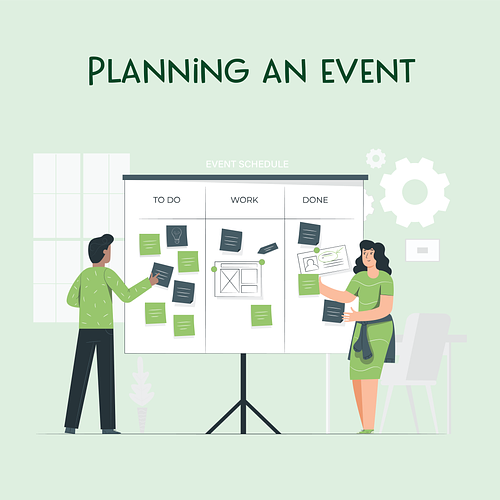DURATION: 120 min
NUMBER OF PARTICIPANTS: 2
AGE: 14 To 29 years old
LEVEL OF TRUST: High
LEVEL OF PARTICIPATION: High
LEVEL OF LEVEL_OF_PREPARATION: Yes
MATERIAL: No
TOPIC: projects
INSTRUCTIONS: First session:
1. Ask a group of young people what they are missing in their local community (write these things down on a piece of paper).
2. Ask the group if they would be prepared to do anything about it. If they see a possible solution in an event you can offer them support.
3. Be clear that the event itself is their responsibility.
4. If you have enough time you can talk with them about the details and different tasks that need to be taken care of. It is a good idea to write all this down, so nobody forgets what he_she is responsible for.
5. Set the date of the event.
6. At the end, set the date for your next meeting.
Second session:
1. Discuss what needs to be done and who is responsible for which tasks (in terms of content as well as logistics).
2. Discuss how the group will promote the event in the local community.
3. Support the young people in doing all the necessary paperwork for the event.
4. Set the time when you will meet the group on the day of the event.
Third session:
1. Meet the participants (the group of young people organizing the event) in advance, leaving enough time to prepare the event. How long before depends on the event itself; for example, having a concert will require you to prepare a stage and the team will need more time and manpower than if they are organizing a community picnic.
Fourth session:
1. Reflect and evaluate the event and preparation process. Reflect on the stages of event planning or project work and talk about the implementation of each stage and how the participants experienced it.
2. Make sure that you celebrate the good work with some food, cake, or teambuilding activity.
MATERIALS: Depends on the event
COMMENTS, TIPS & TRICKS: Be aware of the street worker's role – he_she is not there to carry out the event, but to support young people in carrying it out themselves.
Take personal perception into consideration when choosing the type of event to hold and planning out its preparation. If a street worker thinks something the young people proposed isn't realistic (according to his_her experience and standards), he_she can encourage them to consider whether it can be achieved with the available time and resources. The street worker should be careful how he_she judge if something is realistic or not.
